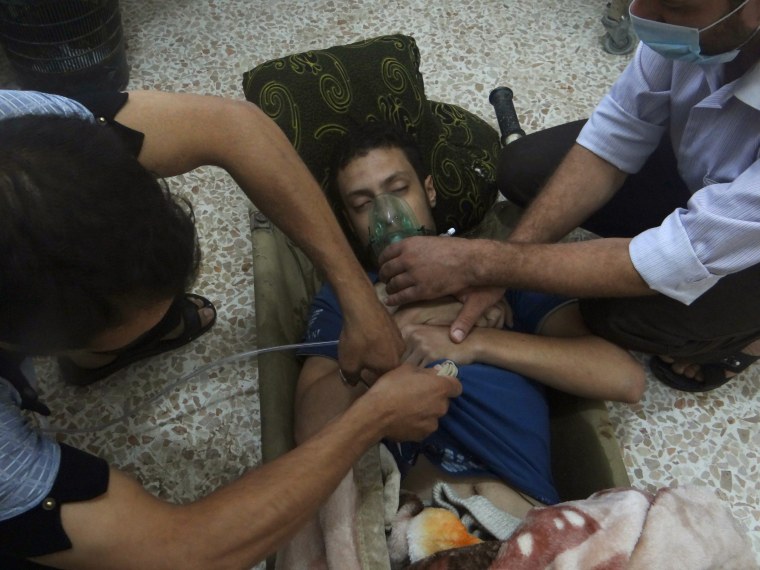The United Nations said Monday that chemical weapons were used in an Aug. 21 attack outside of Damascus, marking the worst chemical attack against civilians in a quarter century.
In a briefing before the Security Council Monday, U.N. Secretary-General Ban Ki-moon presented the inspectors findings, including “clear and convincing evidence that surface-to-surface rockets containing the nerve agent sarin” were used at the site of the attack, which killed nearly 1,500 people, including more than 400 children.
The Secretary-General cited blood and urine samples, along with environmental evidence and corroboration from more than 50 survivors and health care workers near the scene.
“Survivors reported that following an attack with shelling, they quickly experienced a range of symptoms, including shortness of breath, disorientation, eye irritation, blurred vision, nausea, vomiting and general weakness,” Ban said. “Many eventually lost consciousness. First responders described seeing a large number of individuals lying on the ground, many of them dead or unconscious.”
While the U.N. report does not name the perpetrator of the attacks, President Obama and Secretary of State John Kerry have said the forces of Syrian President Bashar al-Assad were responsible. Assad has denied responsibility for the attack, instead casting blame on the opposing rebel fighters, but his government has engaged in a disarming process, which would remove the regime's chemical weapons, brokered by its ally, Russia. On Saturday, the United States and Russia reached a deal that would remove and destroy those weapons by 2014.
Only the Assad regime is known to possess the surface-to-surface rockets cited in the U.N. report.
The Aug. 21 attack escalated Syria’s two-and-a-half year old civil conflict to the forefront international debate, as Obama called on allies and Congress to support retaliatory military strikes against the Assad regime, and Kerry made an impassioned call for intervention on humanitarian grounds. The use of chemical weapons crossed a “red line” drawn by the Obama administration a year earlier, which, if crossed, would prompt unspecified U.S. action.
In the past 31 months, more than 100,000 people have been killed in Syria, and more than two million – including an estimated one million children – have fled the country as refugees. Another seven million are internally displaced.
Watch Secretary-General Ban Ki-moon announce the findings of the U.N. investigation below:
